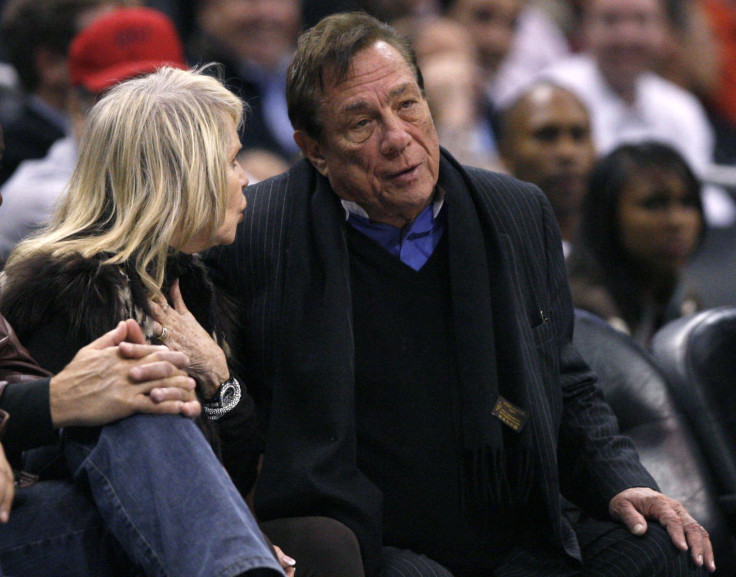Can The NBA Force Donald Sterling To Sell The Clippers? Theories On How The League Can Sanction Owner Over Alleged Racism

Kevin Johnson, former star point guard and current adviser to the National Basketball Players Association, said on Sunday that the union will seek to punish Los Angeles Clippers owner Donald Sterling over his alleged racist comments with “the maximum of what the constitution and bylaws will allow,” but the extent to which he can be reprimanded remains a matter of debate.
On Saturday, TMZ obtained audio of a phone call in which Sterling allegedly told his girlfriend not to bring black people to Clippers games or to post photos of herself posing with black people to her Instagram account. During a Sunday press conference, Johnson said that the NBPA’s leadership wishes to pursue the termination of Sterling’s ownership of the Clippers over the comments.
"The players asked this particular question: They want to know within the bylaws and the constitution, what are the maximum sanctions that are available for the commissioner to mete out? That's what we're trying to understand, and that is what the players want. And if it allows a player to voice an opinion where a commissioner and owners make a decision to remove somebody, then that's certainly what the players would like to see,” he said, via Deadspin.
Due to the confidential nature of the NBA’s constitution bylaws, it’s impossible to confirm whether they can legally remove Sterling from his position unless Commissioner Adam Silver or one of his contemporaries confirms that it can be done. Sports attorney Jeffrey Kessler, a partner at Winston & Strawn LLP, told the Wall Street Journal that he believes the NBA can force Sterling to sell the team.
"Requiring the sale of a team would be the most severe sanction," Kessler said. "But I believe the NBA would take the position that the commissioner has the necessary authority to take action.”
According to Kessler, Article 35 of the NBA constitution empowers the commissioner to take that action if he deems it necessary. Furthermore, the legality of the tape -- that is, whether both parties consented to the recording -- wouldn't necessarily factor into the league’s decision. “The league is not a court of law,” he said.
In a column for Sports Illustrated, Michael McCann, an expert on sports law, stated his belief that the NBA’s constitution wasn’t designed to govern this type of situation. If a league investigation into Sterling’s alleged racism finds that he damaged the league’s reputation with his comments, Silver can levy a fine or suspension. McCann noted, however, that it would be very difficult for league officials to get Sterling’s fellow owners to go along with such a suspension.
“Some NBA owners may be uncomfortable with the league suspending an owner,” McCann said. “Even if they find Sterling's alleged comments reprehensible, owners may worry about the precedent it would set. In that vein, if Silver can suspend an owner in this instance, might he use that power against them in other situations? Might he suspend an owner for criticizing referees or tweeting sensitive information, rather than merely fine him?”
Furthermore, McCann posited that it would be difficult for the NBA to forcibly remove Sterling from ownership. While the league constitution purportedly allows for the sale of a franchise without an owner’s consent, such an action can only occur in “very limited circumstances and these circumstances concern team finances -- namely, when an owner can't pay his bills,” he noted.
Sources told Sports Illustrated that the NBA can't take control of an owner’s team solely because of offensive remarks or beliefs, but the league could attempt to coax Sterling into selling the Clippers through an indefinite suspension.
© Copyright IBTimes 2025. All rights reserved.






















